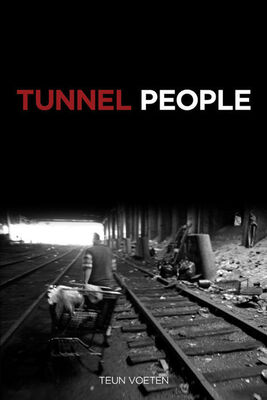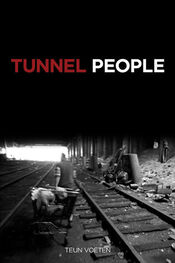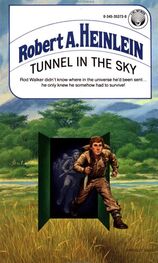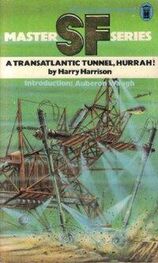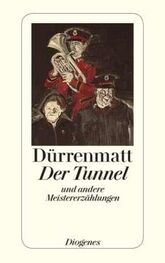Near his camp, Bernard points out the portrait Pape made of him. “It doesn’t look like me,” he says disappointedly. In fact, the portrait resembles an unshaven American soldier out of the Second World War with a cigarette in his mouth. What looks like a helmet is actually the hood of a sweatshirt, drawn halfway over the eyes.
Next to it is a portrait of an old, wrinkled squint-eyed guy, with a sarcastic grin and a protruding under lip. It is Bob, Bernard’s old neighbor who has moved back to the world above.
Bernard takes me to the fireplace, where he offers me a chair and immediately begins to talk. “The world up top thinks we are just drug addicts and alcoholics.” Bernard leans back at his ease in an old office chair, his feet resting on the grill of the smoldering fireplace.
“But to survive here, you have to be able to provide for the three basic necessities: water, firewood and food. This is no place for crackheads.” He points at the fireplace with the filthy black grate, clogged with chunks of grease and soot. “Our grill. That’s where we cook.”
Against a wall is a box full of extra thick Sunday Times. Next to it sits a pile of pine wood.
“Wood and old papers to start the fire,” Bernard explains. “And here,” he takes me behind the grill, “unlimited kitchen supplies.”
Just below a giant mural, there is a huge collection of pots, pans, kettles and coffeemakers, all covered in a thin layer of dust and soot. On the grill, knives and forks are soaking in a small pan of water. A thin membrane of dirt floats on top of the water.
“Homeless? Here is my home.” Bernard continues. “This is the kitchen. Fully equipped with stuff I found on the street. I got a living room of twenty city blocks. Few people up top can say the same. Before I wound up here, I was in a cheap hotel. I could only bear it for two weeks. Ten bucks a night for a place where you could hardly move your ass and where you were surrounded by trash, noise, and chaos. In the tunnels, there is a strange sort of peace. Here I finally found my peace of mind.”
Bernard sees me looking at the dark space behind the column, where garbage has been piling up in a big heap. “That’s what visitors notice when they come down here. The rats and the trash, empty wine and crack bottles. But hey, you can find that up top as well. And the garbage, well, what the fuck do you want? The Sanitation Department doesn’t come down here.” Bernard makes himself at ease at the fireplace and continues. “Journalists come here with preconceived opinions,” he explains. “They only see the mess, but they fail to see the essence: brotherhood, a sense of community, that’s the key thing here. And up till now, no one ever understood that.”
I take a note of it. Bernard continues what starts to sound like a lecture. “I’ve learned more about life here than I ever would do up top. Tunnel life was a spiritual rebirth. And I tell you, if tomorrow my time were to come, I could say at least that I was a free person. Nobody could ever take this experience away from me. And if I could choose, I would do it again.”
Bernard is an eloquent speaker, his vocabulary is peppered with sophisticated words like oblivious, impeccable, elusive , words I have to look up later in a dictionary. He is orating slowly, so I have enough time to write down every word he says. Later, I will hear him repeat exactly the same monologue to fellow journalists in the tunnel.
Bernard explains that disgust with life up top drove him down into the tunnel. Greed and chaos are keywords in his philosophy. “There is enough for fucking everybody on the planet. Enough living space, enough food, enough water, enough everything. But this world is ruled by greed. Greed destroys everything.”
He shows me a colorful graffiti piece on the wall of a bunker to make his point. A brain is squeezed between four mysterious letters that, like Houdini, are tied up by large chains. “The piece is called ‘Brains in Chains,’” explains Bernard. “The letters actually form the name SANE, an upside-down mirror image. This was his last work. Made especially for me.”
Sane was one of the most promising talents on the graffiti scene. He drowned in Brooklyn harbor. Some say it was an accident while tagging on a bridge; others hold dark conspiracy theories because Sane was an excellent swimmer. On top of the brain in chains is a quote from Bernard: SOCIETY IS GUILTY OF INTELLECTUAL TERRORISM sprayed in aggressive, bold capitals.
“Everybody is always talking about emancipation,” says Bernard. “Abraham Lincoln initiated the proclamation of emancipation with the abolition of slavery.” Bernard pauses to give me the chance to jot down this complicated sentence in my notebook. “Originally and literally, emancipation meant ‘the liberation of hands from manual labor.’ But the mind is still chained. Everybody is absorbed by the Dollar Game.”
It starts to sound like a philosophy class at some new-age academy. Is Bernard a modern-day Diogenes? Bernard has his answer ready. “A French journalist once tried to impose that role on me. The Gods punished Diogenes because he loathed human beings. He received the most cruel punishment possible: He was sentenced to devote the rest of his life searching for an honest and truthful man. But I don’t loathe humans, I only have a problem with them.
“Back in college, I went to my teacher of philosophy. I told him ‘Professor, how am I supposed to learn something here with thirty smart-asses in the class who interrupt incessantly with stupid questions?’ ‘I can see that you are predestined to life as a recluse,’ he answered me.”
I do some fact-checking later. The story about Lincoln is relatively correct. But with Diogenes, Bernard mixes up Post-Socratic philosophers and Greek mythological figures. It’s not that bad, however, because he achieves a creative synthesis and it is clear what he means to say.
Bernard is now unstoppable and continues with an existential variation of the Fall from Grace. “Humanity is living under a curse. People are cursed to think. Humans cannot simply be. People need chaos. And still they think they are superior and intelligent. But look around you: We have all the technology, but no harmony. Other civilizations on earth do. Like the Lemurians for instance.” I look at him puzzled. “Those are the descendants from the old empire of Atlantis,” Bernard explains patiently. “They live under the ocean, but refuse to interact with us. Why would they even?”
Bernard lectures on and throws in a pinch of Eastern Mysticism. “An old friend divulged to me the essence of life. Everything is made of three forms of energy: positive energy, negative energy, and the most important—the energy of imbalance. And the last form, the force of no direction, is causing all these problems and chaos.”
Bernard tells me he is writing a book titled The Simplicity of Being. He is now writing the thirteenth chapter that deals with the Essence of Human Being. “Human Being…” he says sarcastically. “Being human is just a condition mankind imposes on himself. Humanism is an excuse for stupidity. Oh sorry, we’re only human.” Bernard imitates a childish voice.
“And then you have this amateur, Descartes,” he rages on. “Cogito ergo sum. What was he thinking? People only think they are able to think. Or this Shakespeare. To be or not to be. How for heaven’s sake can someone refuse Being?”
A few harsh whistles interrupt his ontological one-liners. A bright light is appearing in the distance and shines on the pillars.
“That’s the one-thirty to Ohio,” says Bernard and he gets up. The approaching headlights are from an Amtrak train. Bernard waves, the conductor answers with another thunderous whistle. Like lightning, the silvery train of ten cars hurtles by. A strong wave of air nearly knocks us over.
Читать дальше